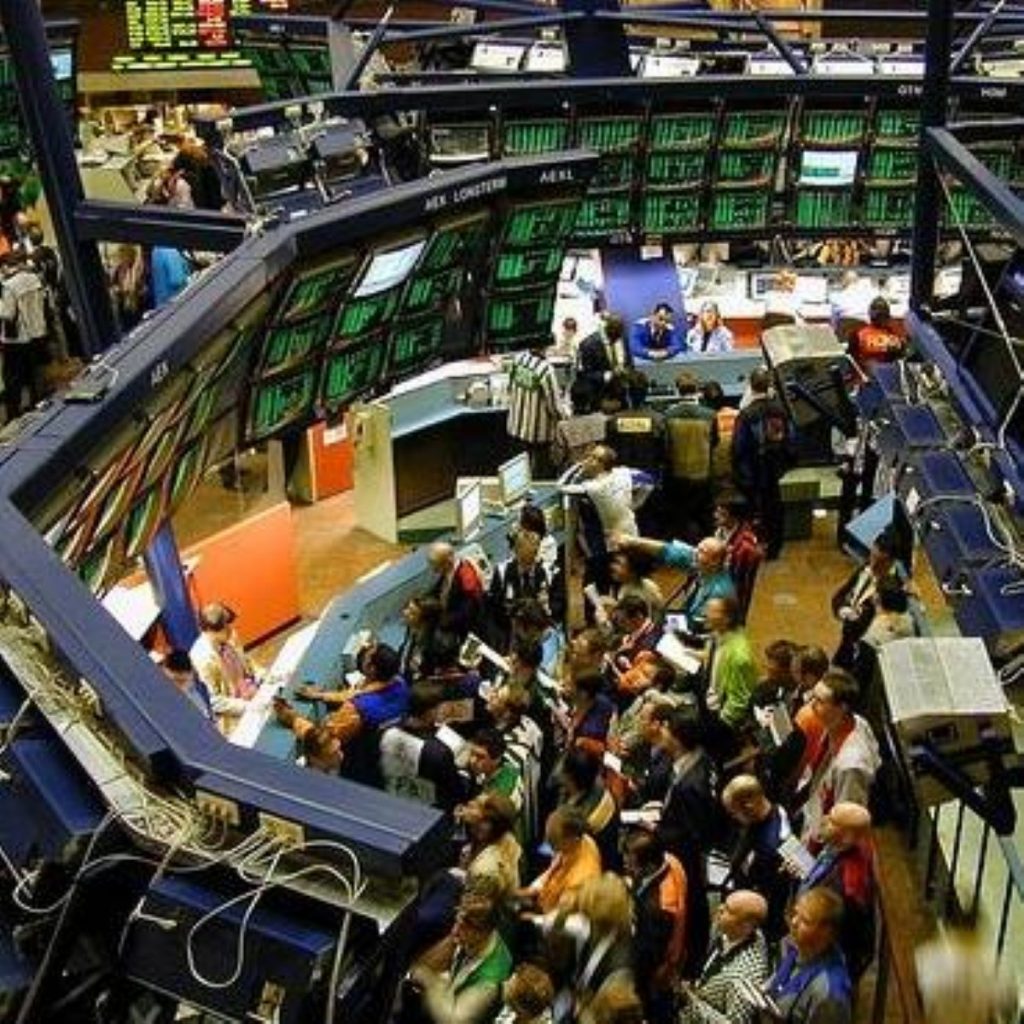National Economic Council holds first meeting as FTSE falls
Gordon Brown’s new ‘war Cabinet’, the National Economic Council, has met this morning for the first time.
The meeting came as the FTSE 100 fell more than 200 points following a weekend of financial turmoil across Europe.
The council meeting, which will take place twice a week in future, comes as MPs return to Westminster after the summer break.
“This is a new way of governing that is based on the uniqueness of the circumstances,” Mr Brown said when he announced the council.
“These are new times. The global economy will never be the same again. Huge changes are taking place. We have to deal with it in a new way.”
Meetings will involve an assessment of the current financial situation and analysis of the latest developments in global commodity markets with an eye to their effects on the UK.
The room in which it takes place holds several computers, with some observers describing it as a high-tech Cabinet room.
Its membership consists of:
- The prime minister (Chair)
- the chancellor of the exchequer (deputy Chair)
- the secretary of state for foreign and commonwealth affairs
- the secretary of state for business, enterprise and regulatory reform
- the secretary of state for innovation, universities and skills
- the secretary of state for children, schools and families
- the secretary of state of energy and climate change
- the secretary of state for environment, food and rural affairs
- the secretary of state for work and pensions
- the secretary of state for communities and local government
- the secretaries of state for Scotland, Wales and Northern Ireland
- the chief secretary to the Treasury
- the minister for housing
- the minister for science
- the minister for the City
- the minister for economic competitiveness and small business
- the minister for communications, technology and broadcasting
The cabinet secretary and the permanent secretary to the Treasury will act as joint secretaries to the council.
Despite news from the US that both the lower and upper houses of Congress had approved a bank rescue plan, the FTSE 100 fell over four per cent by 08:30 BST today.
Weaker metal prices and uncertainty about the economy led to a dramatic slide in the value of mining stocks, with Kazakhmys down 13.53 per cent in early trading, Xstrata down 11.90 and Rio Tinto down by 11.57 per cent.
‘Defensive’ stocks, such as Tesco (up by 5.70 per cent) are on the rise, as is HBOS (up by 17.87 per cent) after reassurances last week the bank would not be allowed to fail.
On Friday, the Dow Jones fell 1.49 per cent after President Bush signed the bailout bill as investors faced the probability that the country is going into a recession anyway.
Asian markets also fell on uncertainty over the weekend.
The Nikkei 225 Index dropped 4.3 per cent in Tokyo by early afternoon on Monday, the Standard and Poor’s/Australian Stock Exchange 200 Index in Sydney was down 3.3 per cent and the Hang Seng Index in Hong Kong fell 3.4 per cent.





-01.png)